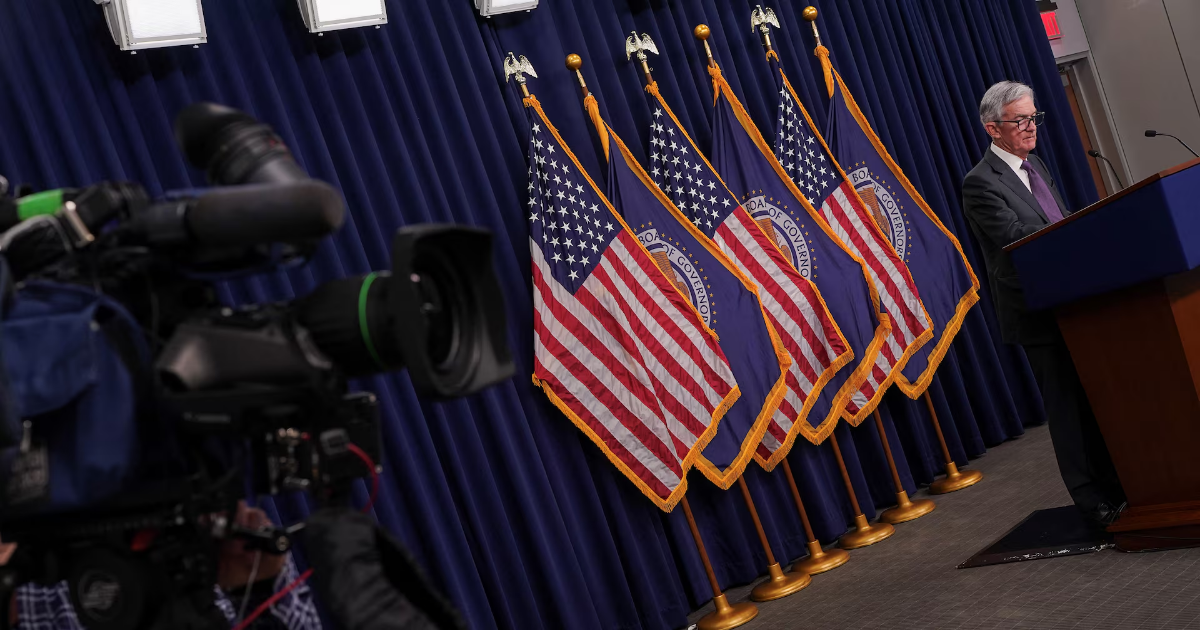April 21 (Reuters) – The U.S. economy could slow unless interest rates are lowered immediately, President Donald Trump said on Monday, repeating his criticism of Federal Reserve Chair Jerome Powell, who says rates should not be lowered until it is clearer Trump’s tariff plans won’t lead to a persistent surge in inflation.
“With these costs trending so nicely downward, just what I predicted they would do, there can almost be no inflation, but there can be a SLOWING of the economy unless Mr. Too Late, a major loser, lowers interest rates, NOW,” Trump said in a post on Truth Social.
Sign up here.
The comments, and the administration’s seemingly intensifying pressure on a Fed chair Trump has stated he would like to see gone, sent stock markets lower and bond yields higher as investors and analysts mulled the fallout should Trump ignite a fight over the Fed’s monetary policy independence and try to remove Powell before the end of his term a little over a year from now.
It’s not clear Trump has the authority to do so, and even if successful the Fed’s governance structure would give the remaining board members and regional bank presidents say over interest rate decisions – potentially forcing the White House into a deeper assault on the Fed’s seven-member Board of Governors.
Trump’s repeated threats to fire Powell come as he tries to goad the Fed into quickly cutting interest rates to mitigate a widely expected economic slowdown and possible harm to the labor market due to his tariff and other policies, while Fed policymakers urge caution on concerns inflation, which remains above their 2% target, could be pushed higher by the import taxes.
The Fed next meets on May 6-7 and is widely expected to hold the benchmark interest rate steady in the current 4.25% to 4.50% range.
WEAKER OUTLOOK
The growth outlook and overall sentiment have both been falling as Trump ratcheted up efforts to impose import taxes on goods from major U.S. trading partners and many core products, with top economists raising the estimated odds of a recession this year. The Conference Board’s index of Leading Economic Indicators fell by 0.7% in March, and while still above recession levels “pointed to slowing economic activity ahead,” said Justyna Zabinska-La Monica, senior manager, business cycle indicators, at The Conference Board, with consumer sentiment and manufacturing weakening and stock prices in decline.
While inflation is expected to decline in upcoming readings, there is broad agreement as well that the import tariffs Trump plans to impose will drive it back to perhaps 4% or higher through the rest of the year.
Fed officials say that while that price shock may prove temporary, allowing them to cut rates eventually, they worry it could lead to more persistent inflation that would require them to keep credit conditions tighter.
Chicago Fed President Austan Goolsbee said in comments to CNBC on Monday that the central bank needed more time to see the net impact of Trump’s policies.
“The impact of tariffs on the macroeconomy could potentially be modest,” Goolsbee said. “We don’t know what the impact on the supply chain is going to be so I think we want to be a little more of a steady hand and try to figure out the through line before we’re jumping to action.”
U.S. stocks, which opened lower Monday on investor worries about Trump’s escalating attacks on Powell, slid further after the president’s social media post, with the benchmark S&P 500 Index down 2% on the day.
The rise in Treasury yields is a particularly sensitive point for the administration as it means higher mortgage, car loan and other financing rates for consumers, and more expensive credit conditions for companies. Long-term yields are set by market trading that can be influenced by but are ultimately independent of Fed decisions about where to fix the short-term benchmark it controls directly.
Reporting by Ismail Shakil in Ottawa; Additional reporting by Howard Schneider in Washington; Editing by Doina Chiacu and Andrea Ricci
Our Standards: The Thomson Reuters Trust Principles.
Covers the U.S. Federal Reserve, monetary policy and the economy, a graduate of the University of Maryland and Johns Hopkins University with previous experience as a foreign correspondent, economics reporter and on the local staff of the Washington Post.
